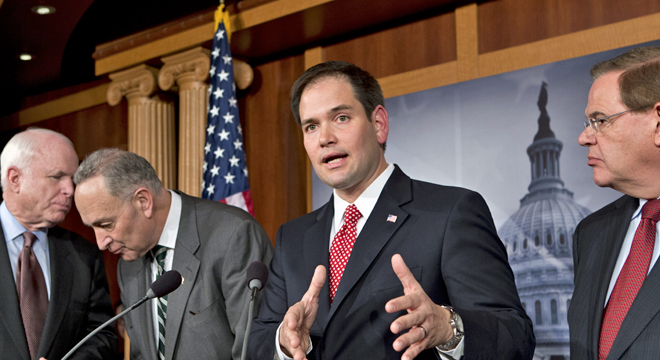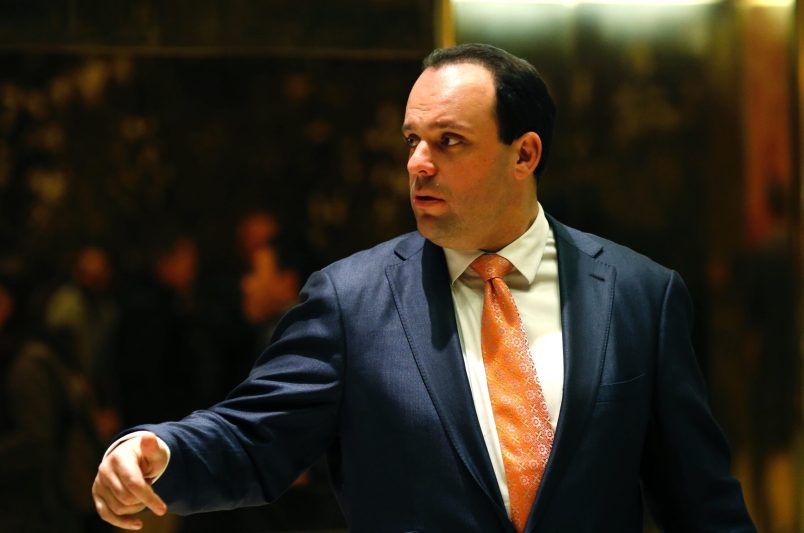Let’s take another look at the immigration reform paradox I wrote about yesterday. I think these ultimately amount to different ways of explaining the same thing, but that this analysis might be better for heuristic purposes.
In a polarized two-party political system, it makes sense that big national policy reform ideas are often partisan. There are exceptions, obviously. But since only one party can ultimately reap a net electoral benefit from any single reform, it stands to reason that the other party would broadly oppose it. Immigration reform in 2013 violates this rule of thumb. Or at least it appears to. But when you put the emerging consensus in context it doesn’t seem quite so irrational.
GOP leaders fell into line on immigration reform in the immediate aftermath of the 2012 election, almost overnight. In so doing, they dismissed long-standing concerns that true immigration reform will yield millions of net Democratic voters over the course of many years.
Why would they do that? My sense is that it’s because the math looks very different in the near term than in the medium and long term. When President Obama won in November, immigration reform was destined to be on the national agenda this year. And though killing it might make sense for the GOP’s longer-term viability, for the immediate purposes of making gains in 2014 and securing the White House in 2016, it would be a grave error — particularly because Republicans haven’t responded to Democratic gains by offering up anything else that might appeal to Democratic voters. Supporting immigration reform isn’t exactly a sign of Republican panic, but that they think it’s their least bad course of action right now.
I think a lot of conservatives get this, but it’s hard for them to convince party wisemen that they should take another electoral hit in the next couple cycles for the good of the party 10-20 years from now.
That’s why the immigration reform keeps chugging along. But if it ultimately becomes law, all of this suggests Republicans will need to dilute or reverse the longer-term political consequences in a post hoc fashion. And who knows what that’ll entail.







